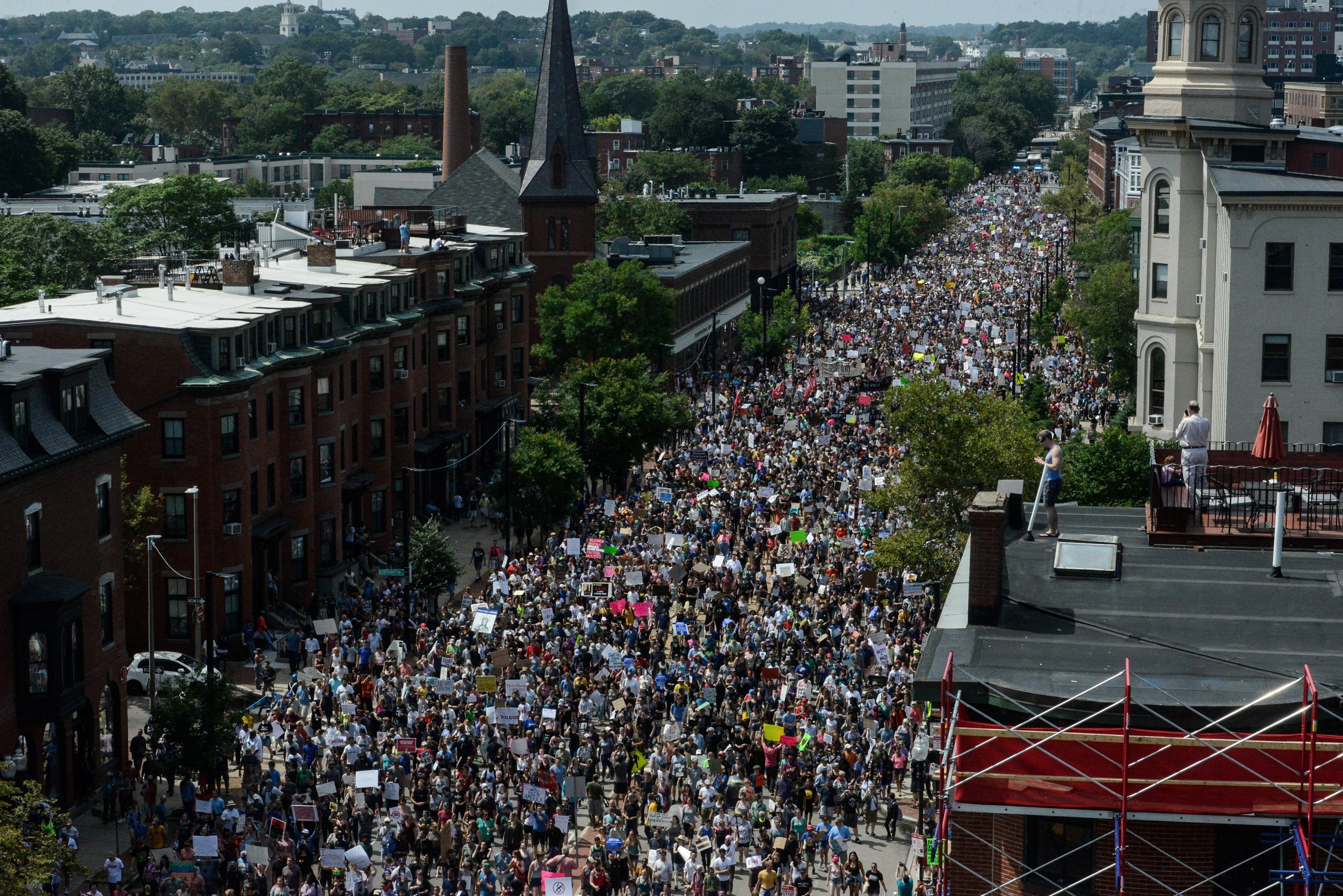
Alexandra Sheldon, an art teacher from Cambridge, was among the thousands who came to Boston Common to express dismay over the displays of white supremacy in Charlottesville. She carried a poster she’d made that said, “America’s strength is its diversity” and “Fake President.” “I need to show up and just be with other people who are just so outraged and so sad and heartbroken,” Sheldon told TIME. “We just can’t sit down for this one.” Seun Ajewde, 28, an MBA student at Northeastern University, called the march a “pivotal moment” for those who believe in equality. “There was like, what, 50 of them?” Ajewde said, referring to the small free speech rally. “And now out here, there’s maybe three, four, five thousand of us all unified, different colors, different races, different sexualities, everything.” Ahead of the rally, police set up extra security cameras in Boston Common, closed off surrounding streets to vehicles and restricted what protesters were allowed to carry, banning anything that could be used as a weapon, including glass containers, bats and posters with sticks. “Our job is to make sure that as the peace rally enters into Boston Common, that the folks that come in there feel safe, that we don’t have an incident that happened like last week in Virginia,” Walsh said at a press conference on Friday, issuing a warning to those who planned to participate on either side. “If you’re looking to start trouble, regardless of who you are tomorrow, don’t come to Boston. We don’t want you here.” The Boston Free Speech Coalition, which organized Saturday’s free speech rally, had said it was unrelated to the white supremacist rally in Charlottesville. “We will not be offering our platform to racism or bigotry,” organizers wrote on the Facebook page for the event. But the lineup of speakers drew criticism for including some on the far-right. Kyle Chapman, who describes himself as a “proud American nationalist,” and Joe Biggs, former writer for the right-wing conspiracy theory website InfoWars, were both scheduled to speak. However, the rally dispersed just 45 minutes after it started on Saturday, and it was not immediately clear which speakers had appeared. “This so-called free speech rally — some of the people speaking have said some very hurtful things about the Jewish community, about the African-American community, about a whole bunch of other communities. And I don’t want them here,” Mayor Walsh said Friday. “I absolutely would not have given them a permit if I didn’t have to give them a permit. We don’t need that type of rhetoric going on in Boston Common. We’ve come too far.” Angelina Camacho, co-organizer of the counter-protest, said beforehand that she would be thinking of Charlottesville as she marched. “How can we not? As a mother, I completely feel for Heather Heyer’s mom,” she told TIME. “We all have to make sure that we have Charlottesville in mind as we go forward.” She said she hoped the message of the counter-protesters would influence others at the rally. “I’m naïve to think we’re going to have a kumbaya moment, but if we can get people to understand how wrong this hate speech is or get people to come to a neutral side or be more questioning about taking such a stance, I would take that as a win,” Camacho said. “If we just reach one, it’s better than none.”Our great country has been divided for decades. Sometimes you need protest in order to heal, & we will heal, & be stronger than ever before!
— Donald J. Trump (@realDonaldTrump) August 19, 2017
